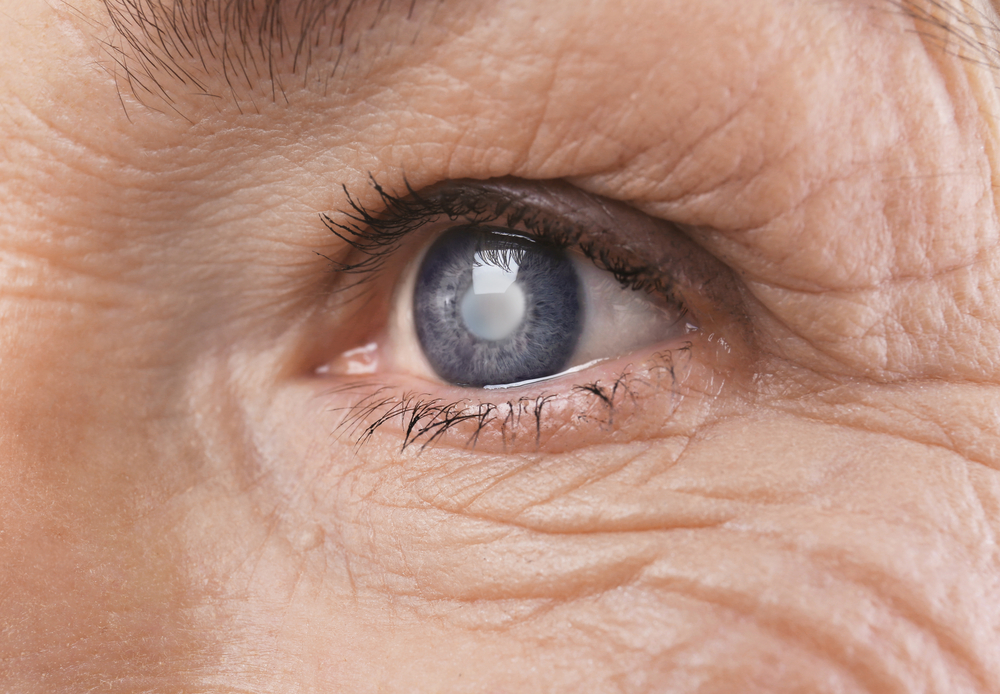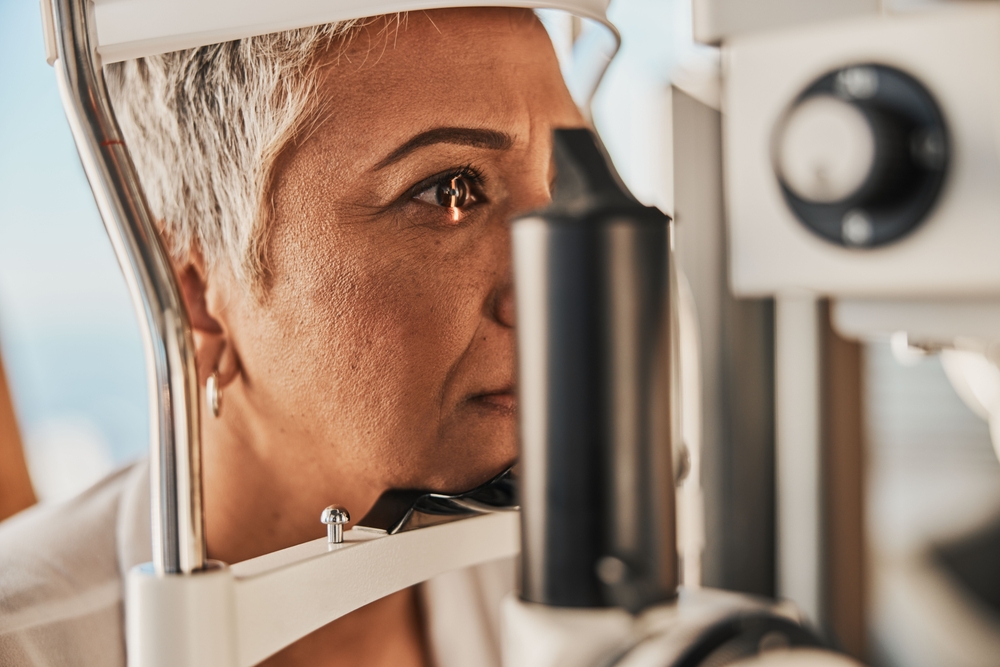Night driving becomes increasingly challenging as cataracts progress, creating dangerous situations that many people don’t recognize until it’s too late. The clouding of your eye’s natural lens doesn’t just blur your vision during the day, it transforms nighttime driving into a potentially hazardous experience filled with blinding glare, reduced contrast, and impaired depth perception.
While there’s no universal threshold, certain warning signs indicate it’s time to limit your nighttime driving or stop altogether. This decision affects your independence, but it’s one of the most important safety choices you’ll make as cataracts develop.
Keep reading to learn when you should consider stopping driving at night if you have cataracts, and when to see your eye doctor if you’re concerned!
How Do Cataracts Affect Night Vision?

A cataract is a clouding of the normally clear lens of the eye. The lens focuses light from the outside world onto your retina, but when it becomes cloudy, hazy, yellow or opacified, the image formed on your retina loses sharpness and clarity.
This results in blurred vision that becomes particularly problematic in low-light conditions. During nighttime driving, your eyes must work harder to process limited light sources.
Cataracts can then scatter incoming light rather than allowing it to pass through cleanly to the retina. This scattering effect creates several specific problems that make night driving dangerous.
Warning Signs That Indicate It’s Time to Stop Night Driving
Several specific symptoms signal that your cataracts have progressed to the point where night driving becomes unsafe.
Glare sensitivity is often the first and most obvious warning sign. If oncoming headlights cause you to squint, look away, or feel temporarily blinded, your cataracts are interfering with your ability to drive safely at night.
Difficulty seeing lane markings, especially on roads without overhead lighting, indicates significant vision impairment. When you find yourself struggling to stay centered in your lane or unsure where the road edges are located, you’ve reached a critical safety threshold.
Similarly, if you can no longer read street signs until you’re very close to them, your visual acuity has declined to dangerous levels for nighttime driving.
Halos around lights represent another clear indication that cataracts are affecting your night vision. These optical distortions make it impossible to accurately judge distances and can completely obscure important visual information like traffic signals or brake lights.
If you notice any combination of these symptoms during evening or nighttime driving, it’s time to seriously consider limiting your driving to daylight hours only.
The Gradual Progression Requires Honest Self-Assessment
Cataracts develop slowly in most cases, progressing over months or years with only minimal visual changes. This gradual progression can make it difficult to recognize when your night vision has become dangerously compromised.
Many people unconsciously adapt their driving habits, avoiding highways, choosing familiar routes, or driving more slowly without realizing these compensations indicate significant vision loss.

For these reasons, it’s important to do regular self-assessment using specific benchmarks.
- Can you clearly read street signs at the same distances you could six months ago?
- Do you find yourself gripping the steering wheel more tightly during night drives?
- Have people close to you expressed concerns about your night driving?
It’s important to take these observations seriously. They may be seeing dangerous situations that you’re not fully aware of due to your gradual adaptation to decreasing vision.
Why Professional Evaluation Is Important
The only way to determine if cataracts are present and assess their impact on your driving ability is through a complete examination by an eye care professional.
There are many possible reasons for blurred or decreased vision, and it’s important to determine the cause and extent of vision loss before making decisions about driving restrictions.
During a comprehensive eye examination, your eye doctor will measure your vision under various lighting conditions, test your contrast sensitivity, and evaluate your glare recovery time. These measurements provide information about your vision that can guide decisions about night driving safety.
Some patients with early-stage cataracts may still drive safely at night with an updated glasses prescription, while others with more advanced cataracts require immediate driving restrictions.
Your eye doctor at Eye Care & Vision Associates will also consider your overall health and your driving history when making recommendations.
Are There Treatment Options That Can Restore Safe Night Driving?
The only real treatment for cataracts is surgical removal. Cataract surgery is the most common and most successful surgery in America.

Many patients experience dramatic improvement in their night vision within days of surgery, allowing them to resume safe nighttime driving.
Also, modern intraocular lens implants can actually provide better vision than natural lenses, with some designs specifically engineered to reduce glare and improve contrast sensitivity. These advanced lens options may give you better night vision after cataract surgery than you had before cataracts developed.
However, as with any surgery, there are risks that should be discussed in detail with your eye doctor before planning cataract surgery. The timing of surgery depends on how much your cataracts interfere with your daily activities, including safe driving.
Taking Action For Your Safety
Recognizing when to stop driving at night with cataracts requires honest self-assessment and professional medical evaluation. At Eye Care & Vision Associates, we specialize in comprehensive cataract evaluation and advanced surgical treatment options that can restore your night vision and driving independence.
Our experienced ophthalmologists use the latest diagnostic techniques to assess your individual situation and recommend the most appropriate treatment timing.
If you’re experiencing any symptoms that affect your night driving comfort or safety, schedule a comprehensive eye examination at Eye Care & Vision Associates in Buffalo, NY, today to discuss your options.

